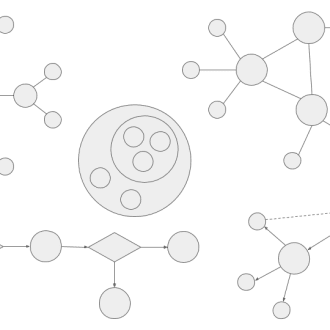
10 Best Articles on Systems Thinking
The most useful articles on systems thinking from around the web, curated by thought leaders and our community.
Refind focuses on timeless pieces and updates the list whenever new, must-read articles or videos are discovered.
Top 5 Systems Thinking Articles
At a glance: these are the articles that have been most read, shared, and saved on systems thinking by Refind users in 2024 so far.
Short Articles
Short on time? Check out these useful short articles on systems thinking—all under 10 minutes.
Systems thinking is what makes designers great — Tanner Christensen
I used to believe that what made great designers so great was their craft; their ability to add polish and style to whatever they touched. Now I see that what makes exceptional designers so incredible…
«We call this lens of thinking "systems thinking." It tends to separate the genuinely great designers from the pretty-great ones.»
Design systems thinking
Do you have a design system or do you have a design analytical?
Humanity is stuck in short-term thinking. Here’s how we escape.
Every so often, I ask my daughter about the future. When she was three, she had only a basic concept of time, with little awareness of clocks or calendars. She could understand The Very Hungry…
How Systems Thinking Can Simplify Your Life
When you commit to a system, real progress is guaranteed
Networked thinking: a quiet cognitive revolution
Humanity has lived through several cognitive revolutions already. The development of various writing systems around the world; the invention of the printing press; the formulation of the heliocentric…
Long Articles
These are some of the most-read long-form articles on systems thinking.
From systems thinking to systems doing
A primer to apply Systems Thinking in Product Design
«Don’t solve problems. dissolve them»
Systems thinking: the key to process improvements
“Learn how to see. Realize that everything connects to everything else.”
The Map Is Not the Territory
The map of reality is not reality. Even the best maps are imperfect. That's because they are reductions of what they represent. If a map were to represent the territory with perfect fidelity, it would…
«A model might show you some risks, but not the risks of using it. Moreover, models are built on a finite set of parameters, while reality affords us infinite sources of risks.»
Thinking in maps: from the Lascaux caves to modern knowledge graphs
Humans have been thinking in maps since the first symbolic communication systems. While it may first bring cartography to mind, a map isn't always geographic.
Nicky Case: Seeing Whole Systems
Nicky Case’s presentations are as ingenious, compelling, and graphically rich as the visualizing tools and games Nicky creates for understanding complex dynamic systems. Case writes: “We need to see…
What is Refind?
Every day Refind picks the most relevant links from around the web for you. Picking only a handful of links means focusing on what’s relevant and useful.
How does Refind curate?
It’s a mix of human and algorithmic curation, following a number of steps:
- We monitor 10k+ sources and 1k+ thought leaders on hundreds of topics—publications, blogs, news sites, newsletters, Substack, Medium, Twitter, etc.
- In addition, our users save links from around the web using our Save buttons and our extensions.
- Our algorithm processes 100k+ new links every day and uses external signals to find the most relevant ones, focusing on timeless pieces.
- Our community of active users gets the most relevant links every day, tailored to their interests. They provide feedback via implicit and explicit signals: open, read, listen, share, mark as read, read later, «More/less like this», etc.
- Our algorithm uses these internal signals to refine the selection.
- In addition, we have expert curators who manually curate niche topics.
The result: lists of the best and most useful articles on hundreds of topics.
How does Refind detect «timeless» pieces?
We focus on pieces with long shelf-lives—not news. We determine «timelessness» via a number of metrics, for example, the consumption pattern of links over time.
How many sources does Refind monitor?
We monitor 10k+ content sources on hundreds of topics—publications, blogs, news sites, newsletters, Substack, Medium, Twitter, etc.
Can I submit a link?
Indirectly, by using Refind and saving links from outside (e.g., via our extensions).
How can I report a problem?
When you’re logged-in, you can flag any link via the «More» (...) menu. You can also report problems via email to hello@refind.com
Who uses Refind?
450k+ smart people start their day with Refind. To learn something new. To get inspired. To move forward. Our apps have a 4.9/5 rating.
Is Refind free?
Yes, it’s free!
How can I sign up?
Head over to our homepage and sign up by email or with your Twitter or Google account.
Keep Learning
Get the big picture on your favorite topics.









